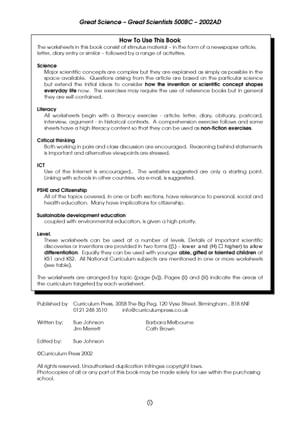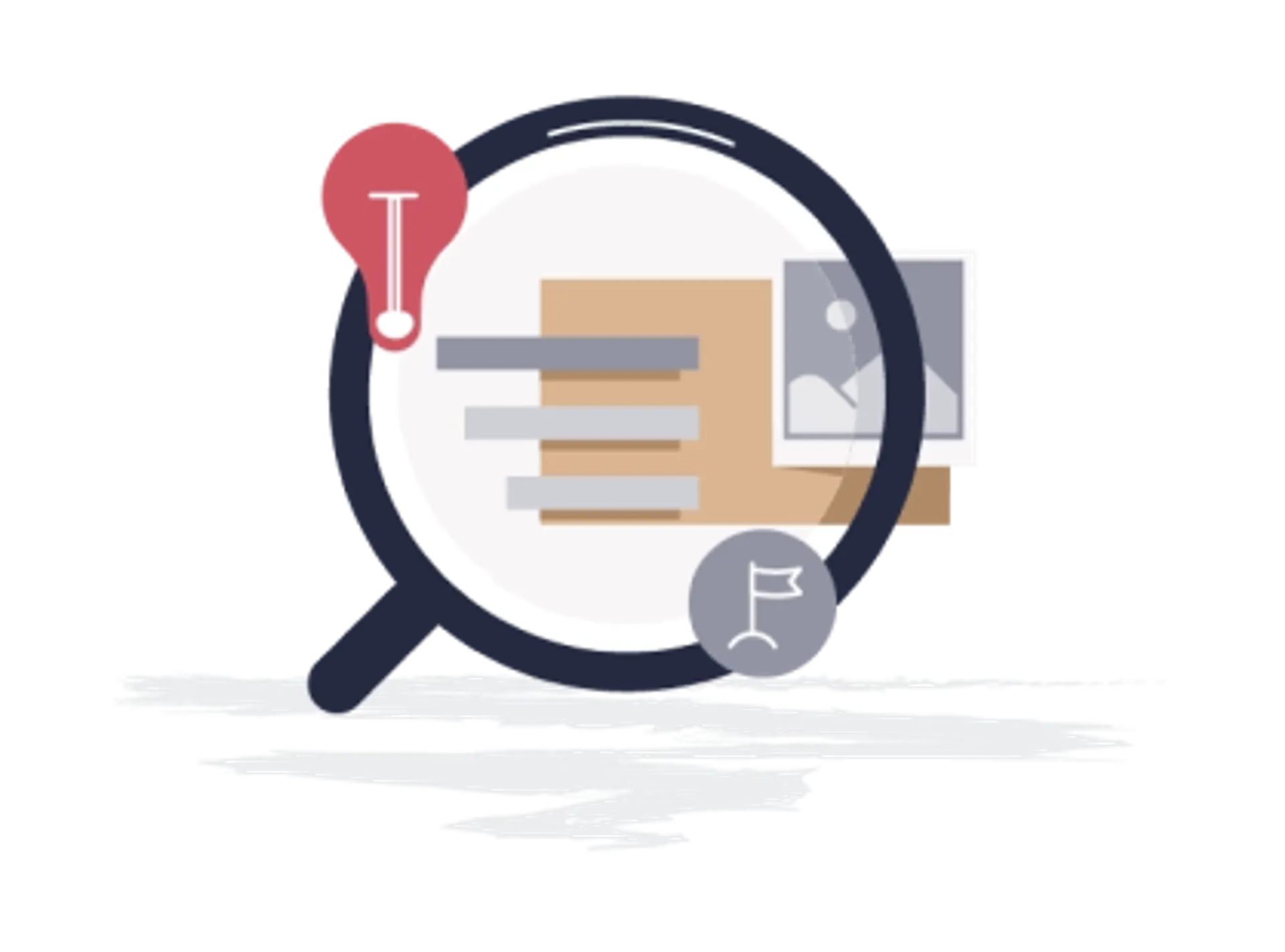Great Scientists: 500 BC - 2002 AD – KS2 Science E-Book
Description
The worksheets in this 221 page E-book consist of stimulus material - in the form of a newspaper article, letter, diary entry or similar - followed by a range of activities.
Key Features:
Science
Major scientific concepts are complex but they are explained as simply as possible in the space available. Questions arising from the article are based on the particular science but extend the initial ideas to consider how the invention or scientific concept shapes everyday life now. The exercises may require the use of reference books but in general they are self-contained.
Literacy
All worksheets begin with a literacy exercise - article, letter, diary, obituary, postcard, interview, argument - in historical contexts. A comprehension exercise follows and some sheets have a high literacy content so that they can be used as non-fiction exercises.
Critical Thinking
Both working in pairs and class discussion are encouraged. Reasoning behind statements is important and alternative viewpoints are stressed.
ICT
The use of the Internet is encouraged. The websites suggested are only a starting point. Linking with schools in other countries, via e-mail, is suggested.
PSHE and Citizenship
All of the topics covered, in one or both sections, have relevance to personal, social and health education. Many have implications for citizenship. Sustainable development education coupled with environmental education, is given a high priority.
These worksheets can be used at a number of levels. Details of important scientific discoveries or inventions are provided in two forms (L) lower and (H) higher, to allow differentiation. Equally they can be used with younger able, gifted or talented children at KS1 and KS2. All National Curriculum subjects are mentioned in one or more worksheet.
Contents:
Astronomy (Earth, Sun and Moon etc.)
• Aristarchos of Samos - planets (size)
• Halley - comets
• Herschel - planets
• Hubble - telescopes/space
• Ride - space travel
Computers (ICT)
• Babbage - first computer
• Berners-Lee - World Wide Web
• Hopper - early uses of computers
• Wozniak - Apple computers
Electricity (making and using it)
• Baird - television
• Baylis - wind-up radio
• Bell - telephone
• Dyson - use of a motor
• Edison - light bulb
• Faraday - motors
• Marconi - radio
• Morse - Morse code
• Tesla - electricity transmission
Evolution, ecology, minibeasts
• Carson - environmental awareness
• Cox - medicines from rainforests
• Darwin - evolution
• Ehrlich - extinction
• Linneus - classifying plants and animals
• Mendel - heredity
• Muller - mosquitos
• Ormerod - minibeasts
• Owen - dinosaurs
• Potter - fungi and lichens
Food
• Appert - food preservation
• Balfour - organic farming
• Birdseye - frozen food
• Carver - crop rotation
• Drew-Baker - sustainable food production
Forces
• Hooke - springs
• Newton - gravity
Gases around us
• Gossage - cleaning up polluted air
• Midgley - petrol fumes
• Priestley - oxygen and carbon dioxide
Geography and geology
• Richter - earthquakes
• Smith - fossils
• Wegener - continental drift
Human body
• Crick - DNA
• Curie - radiation and methods of treatment
• Doll - smoking and health
• Drew - blood and circulation
• Fauchard - teeth
• Franklin . DNA
• Lind - scurvey
• Seacole - health care/ National Health
• Service
Ideas in science
• Common sense science - early humans
• Galileo - movement of Earth in space
• Hypatia - early scientific beliefs
• Leeuwenhoek - magnification
• Somerville - women in science
Materials
• Darby - iron work
• Kwolek - Kevlar
Mathematics
• Archimedes - volume (also Archimedes screw)
• Descartes - co-ordinates (maps and graphs)
• Fibonacci - Fibonacci series
Media/arts
• Biro - writing implements (and writing systems)
• Braille - writing system
• Gutenberg - printing press
• Leonardo - accurate drawings
• Niépce - photography
• Pi Sheng - printing process
Transport
• Drebbel - submarine
• Ford - making cars
• Macmillan - bicycles
• Montgolfier brothers - hot air balloons
• Stephenson - trains
• Whittle - jet aircraft
• Wright brothers - first powered flight
Water
• Harington - toilet
• Snow - cholera/ water pollution
• The River Thames - habitats in clean water
Answers are at the back of the book.
Download Type
.PDF (pdf) 30.701 MB
Publication Date
January 2002
Copyright Disclaimer
The materials published on this website are protected by the Copyright Act of 1988. No part of our online resources may be reproduced or reused for any commercial purpose, or transmitted, in any other form or by any other means, without the prior permission of Curriculum Press Ltd.
Similar Resources
What our customers say
Find exactly what you’re looking for.
- Popular Searches
- A Level Media Studies
- Geography
- Biology
- Chemistry
- Physics
- A Level Sociology
Newsletter
General
Work with us
Get in touch
- © 2024 Curriculum Press
- Terms & Conditions
- Privacy & Cookies
- Website MadeByShape




